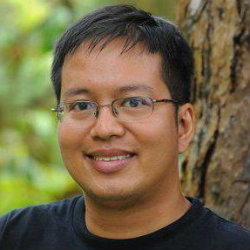Biotech students protest SC ruling on GMOs

Biotechnology students from the University of the Philippines and other allied universities are protesting the Philippine Supreme Court's (SC's) recent order to halt all field testing of Bt talong.
The SC's controversial ruling was due to a supposed lack of consensus on the safety of such genetically-modified organisms (GMOs)—despite heavy scientific evidence to the contrary.
The UP League of Agricultural Biotechnology Students (UP LABS) expressed concern over the ruling's potential impact on the growth of Philippine science.
"(The SC decision) may decelerate agricultural development in the
country. (W)ith lesser opportunities to hone their expertise in the Philippines, graduates may seek greener pastures in other
countries," the group said in its press release.
"The youth might be discouraged to pursue a degree in specialized sciences because of the lack of institutional support, appreciation and incentives," the group added.
UPLABS Statement Re SC Ruling 2015
UP LABS' statement is also supported by the following academic organizations:
- Biology Majors Alliance of the Philippines (BMAP)
- UP College of Agriculture Student Council (UP CASC)
- UP College of Science Student Council (UP CSSC)
- UP School of Statistics Student Council, (UP Stat SC)
- Rizal Technological University College of Arts and Sciences Student Council (RTU CASSC)
- UP Agricultural Society (UP AgriSoc)
- UP Los Baños Chemical Society (UPLB ChemSoc)
- UPLB Genetics Society (UPLB GeneSoc)
- UP Pabvlvm Scientia Sodalitas (UP PSS)
- UPLB DOST Scholars’ Society (UPLB DOST SS)
- UP Beta Kappa Fraternity (UP BK)
- UP Molecular Biology and Biotechnology Society (UP MBBS)
- UP Physician-Scientists Association (UP PSA)
- RTU Organization of Biotechnology Students (RTU ORBITS)
- Our Lady of Fatima University-Quezon Campus League of Biology Enthusiasts (OLFU-QC LOBE)
- RTU Interactive Psychology Students Association (RTU IPSA)
Support from academe, other scientists
The students' collective stance echoes that of other scientists, including leading Filipino genomics expert and New York University Dean of Science Dr. Michael Purugganan.
The question of Bt crop safety aside, the ruling effectively stunts the Philippines' scientific competitiveness versus other countries by stifling scientific discourse, according to Purugganan.
"In one ruling, the SC just declared that the Philippines should no longer invest in this technology. We have just ceded future agricultural progress to the developed world, China, and other countries. This guarantees we will never be able to develop this technology for ourselves," Purugganan told GMA News.
"We will now have to depend on other countries to provide the technology, because we have prevented our own scientists from working it out," he added.
'SC did not know enough'
SciDev.Net's Crispin Maslog also pointed out that the SC ruling was a summary decision that erred too much on the side of safety.
"The problem with not deciding on which side's arguments are sound and valid, the Supreme Court in effect sided with the party that wanted to stop field testing. In short, the Supreme Court did not know enough to decide which side was scientifically valid," he said.
He also quoted Emil Javier, former president of the Philippine National Academy of Science and Technology (NAST), as calling the ruling "a huge letdown for the Philippine science community" because it is premised on the SC's misconception of a supposed "balance in Nature [that] should not be disturbed." — GMA News



